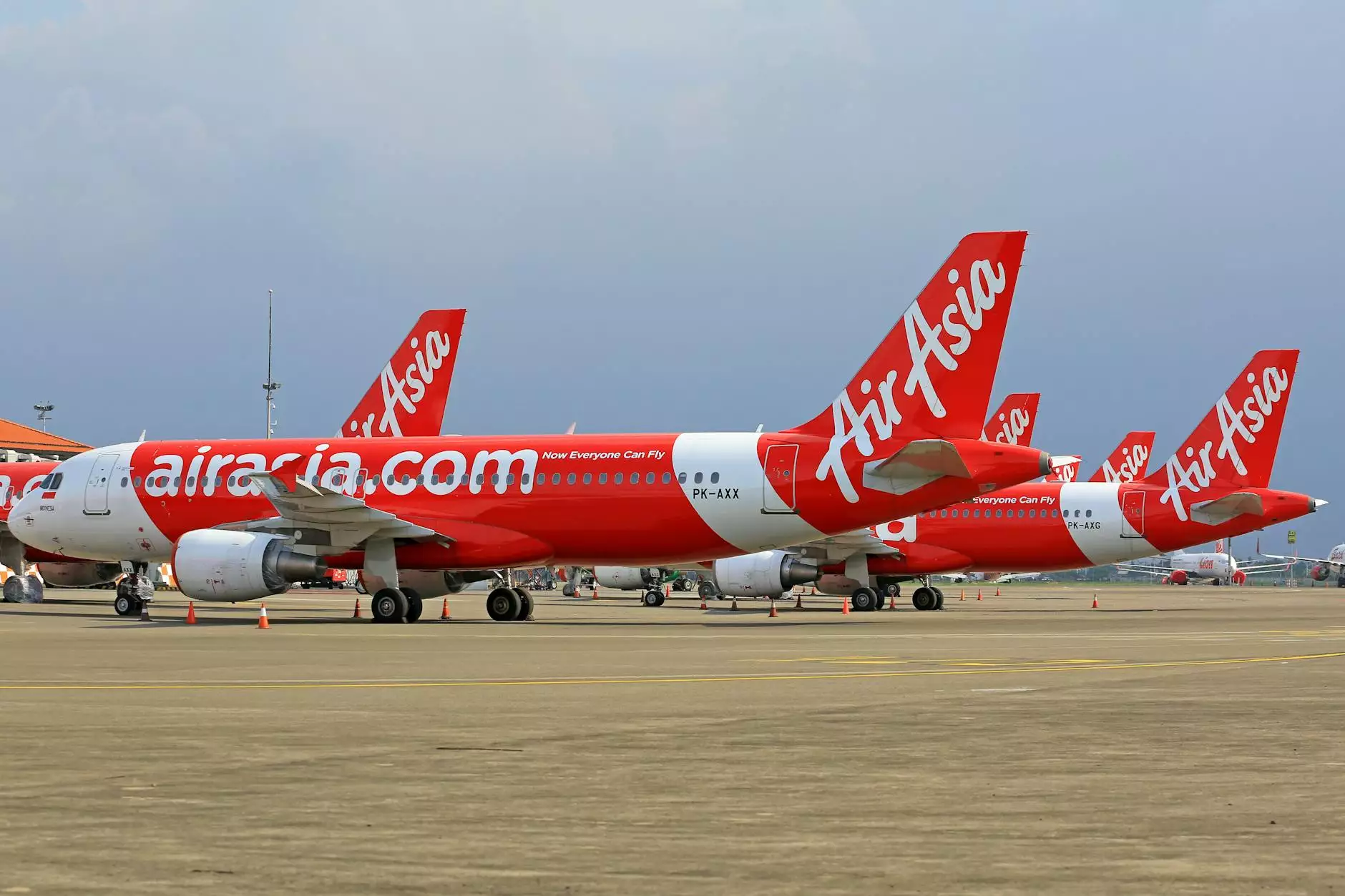Air Cargo Transport: Revolutionizing Global Shipping

Air cargo transport has emerged as one of the most critical components in the world of logistics and shipping. In this rapidly evolving market, businesses are increasingly relying on air freight to ensure that goods are delivered promptly and efficiently. This article delves into the multifaceted aspects of air cargo transport, its benefits, and its impact on various sectors, particularly in relation to cargobooking.aero, a leader in the industry.
The Importance of Air Cargo Transport in Today’s Economy
The global economy thrives on swift and reliable transportation of goods. Air cargo transport is essential for several reasons:
- Speed: Air freight is the fastest mode of transport, capable of delivering goods across continents in a matter of hours.
- Reliability: With scheduled flights and advanced logistics, businesses can count on timely deliveries.
- Global Reach: Air transport allows for access to remote areas and international markets that may not be served by other transportation methods.
- Security: Air cargo typically has lower theft and damage rates than ground transportation.
Understanding Air Cargo Operations
To fully appreciate the impact of air cargo transport, it's essential to understand how air cargo operations function. The process can be broken down into several key stages:
1. Origin and Documentation
Every air cargo shipment begins at the point of origin where the shipper prepares documentation. This includes:
- Air Waybill (AWB)
- Packing list
- Commercial invoice
- Export permits (if necessary)
2. Booking and Acceptance
Once the documentation is ready, the shipper must book space with an airline or freight forwarder. This step involves:
- Choosing the right carrier based on destination, cost, and reliability.
- Confirming the availability of space for desired cargo.
3. Packaging and Labeling
Proper packaging is crucial in air freight, as it ensures that goods are protected during transit. Labeling is equally important, and it must include:
- Handling instructions
- Destination information
- Hazard warnings if applicable
4. Transportation to the Airport
The next step is transporting the packaged cargo to the designated airport. This phase includes:
- Arranging local transport to the airport.
- Ensuring compliance with security protocols.
5. Loading and Departure
After reaching the airport, cargo is checked in and loaded onto the aircraft according to weight and balance specifications. This is where logistics teams ensure:
- Efficient loading schedules.
- Adherence to safety regulations.
Advantages of Using Air Cargo Transport
Businesses across various sectors are turning to air cargo transport for numerous advantages:
Speed and Efficiency
With the ability to transport goods across vast distances in minimal time, businesses can meet tight deadlines, respond to customer demands swiftly, and enhance overall supply chain efficiency. This speed is particularly beneficial in sectors like:
- Electronics
- Pharmaceuticals
- Perishable goods
Market Expansion and Globalization
Air freight enables businesses to expand into new markets effortlessly. Access to international customers becomes seamless when products can be shipped quickly, allowing companies to thrive in the global market.
Cost-Effectiveness for High-Value Items
Although air cargo can be more expensive than other transportation methods, it proves to be cost-effective for shipping high-value or time-sensitive items. Industries such as fashion, technology, and automotive benefit from this model as they often rely on just-in-time deliveries.
The Impact of Technology on Air Cargo Transport
The landscape of air cargo transport is undergoing rapid transformation due to technological advancements. Companies are now leveraging technologies such as:
1. Tracking Systems
Modern tracking systems provide real-time information on cargo location and status. This transparency increases customer satisfaction and allows businesses to manage supply chains better.
2. Automation and Robotics
Automation in warehouses and during loading processes speeds up operations while minimizing human error.
3. Data Analytics
Companies are utilizing data analytics to forecast demand, optimize routes, and manage inventory more effectively, thus enhancing overall efficiency.
Environmental Considerations in Air Cargo Transport
As air cargo transport grows, so does its environmental impact. The industry is actively seeking ways to reduce its carbon footprint, including:
- Investing in fuel-efficient aircraft.
- Utilizing sustainable aviation fuels (SAF).
- Implementing more efficient flight planning to minimize fuel consumption.
The Role of Shipping Centers and Airports in Air Cargo Transport
Shipping centers and airports are pivotal in facilitating efficient air cargo transport. Here’s how:
Key Shipping Centers
Shipping centers such as cargobooking.aero play a significant role in maintaining seamless logistics operations. These centers serve as:
- Major hubs for consolidating shipments.
- Resources for customs clearance and documentation.
- Points for warehousing and transloading goods between different transport modes.
Airports as Logistic Hubs
Airports are not just transit points; they are critical logistic hubs equipped with:
- State-of-the-art cargo facilities.
- Efficient ground handling services.
- Customs clearance operations to expedite shipment movements.
Future Trends in Air Cargo Transport
Looking ahead, several trends are expected to shape the future of air cargo transport:
Technological Innovations
Continued advancements in technology will enhance logistics efficiency through:
- Artificial Intelligence (AI) for predictive analytics.
- Blockchain for secure and transparent transactions.
Sustainability Initiatives
As environmental concerns grow, initiatives focusing on sustainability will gain traction. This includes:
- Reducing emissions through greener technologies.
- Enhancing waste management practices.
Increased Demand for E-commerce Logistics
With the growth of e-commerce, the demand for efficient air cargo solutions will rise, encouraging more businesses to adopt air freight for quick delivery options.
Conclusion
In conclusion, air cargo transport is intricately woven into the fabric of global trade, allowing businesses to operate efficiently and effectively across borders. As the industry evolves, companies like cargobooking.aero are at the forefront of embracing change, innovation, and sustainability. The future of air cargo transport is promising—marked by technological advancements, enhanced operational efficiencies, and a commitment to reducing environmental impacts. For businesses looking to remain competitive in an increasingly global marketplace, air cargo transport offers a vital pathway to success.
air cargo transport








